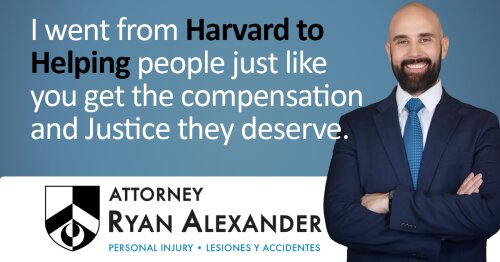Best Education Law Lawyers in United States
Share your needs with us, get contacted by law firms.
Free. Takes 2 min.
Or refine your search by selecting a city:
List of the best lawyers in United States
About Education Law in United States
Education Law in the United States encompasses federal and state regulations, case law, and policies that govern educational institutions and the rights of educators, students, and parents. Key areas include student rights, special education, school governance, teacher employment, school finance, discrimination, and educational standards. Education Law ensures compliance with the constitutional mandates and protects against discrimination while upholding student and educator rights.
Why You May Need a Lawyer
People often require legal help in Education Law when facing situations like navigating special education services and individualized education plans (IEPs), addressing discrimination or harassment in schools, handling disciplinary actions or expulsions, ensuring compliance with educational standards, dealing with teacher employment issues, or managing school governance and finance disputes. Legal assistance can offer guidance through complex legal structures, safeguard rights, and provide advocacy in disputes.
Local Laws Overview
Education laws vary across states, but several federal laws set a baseline for educational standards and rights: the Individuals with Disabilities Education Act (IDEA), the Family Educational Rights and Privacy Act (FERPA), Title IX for gender equality, and the Every Student Succeeds Act (ESSA). States supplement these laws with their regulations on school funding, curriculum standards, teacher certification, and charter schools, reflecting local governance of educational policy and implementation.
Frequently Asked Questions
What is the Individuals with Disabilities Education Act (IDEA)?
IDEA is a federal law ensuring services to children with disabilities throughout the nation, guaranteeing special education and related services tailored to their individual needs.
How are student rights protected in schools?
Student rights are protected under various laws ensuring freedom from discrimination, maintaining privacy, receiving a free appropriate public education (FAPE), and ensuring procedural protections in disciplinary situations.
What is FERPA and what does it cover?
FERPA, the Family Educational Rights and Privacy Act, is a federal law safeguarding the privacy of student education records, giving parents certain rights with respect to their children's education records.
How does Title IX affect schools?
Title IX prohibits sex-based discrimination in any school or any other education program receiving federal funding. It covers all aspects of education including sports, admissions, and employment practices in educational settings.
What should I do if my child is being bullied at school?
If your child is bullied, report it to school authorities following the school's bullying policy. If the response is inadequate, consider consulting with an Education Lawyer to explore further actions, which might include complaints under applicable state laws or federal discrimination statutes.
What legal rights do teachers have?
Teachers have rights related to employment terms, contract negotiation, non-discrimination, freedom of speech, academic freedom, and due process regarding disciplinary actions.
Can schools mandate a specific dress code?
Yes, schools can implement dress codes, provided they do not discriminate and are in line with state and federal constitutional mandates, such as freedom of expression, unless it disrupts the educational environment.
What is an Individualized Education Plan (IEP)?
An IEP is a document developed for each public school child eligible for special education, tailored to meet their unique needs through specific educational goals, services, and accommodations.
Are charter schools subject to the same laws as public schools?
Charter schools have more flexibility regarding curriculum and management but are still subject to state and federal educational standards and accountability regarding student performance and non-discrimination.
How can a parent affect change in local school policies?
Parents can influence school policy by participating in school board meetings, joining parent-teacher organizations, collaborating with advocacy groups, or engaging in public forums to voice concerns and suggest reforms.
Additional Resources
Consider the following resources for more information and support:
- U.S. Department of Education
- State Education Agencies
- American Bar Association Center for Children and the Law
- National Disability Rights Network
- Education Commission of the States
Next Steps
If you need legal assistance in Education Law, first assess your situation to determine your specific needs. Seek initial consultations with specialized Education Law attorneys who can provide insights into your case. Consider non-profit legal organizations that might offer assistance or referrals. Prepare all relevant documents and a clear timeline of events to facilitate an efficient legal consultation. Be informed of your rights and the applicable laws relevant to your situation to engage proactively with legal representatives.
Lawzana helps you find the best lawyers and law firms in United States through a curated and pre-screened list of qualified legal professionals. Our platform offers rankings and detailed profiles of attorneys and law firms, allowing you to compare based on practice areas, including Education Law, experience, and client feedback.
Each profile includes a description of the firm's areas of practice, client reviews, team members and partners, year of establishment, spoken languages, office locations, contact information, social media presence, and any published articles or resources. Most firms on our platform speak English and are experienced in both local and international legal matters.
Get a quote from top-rated law firms in United States — quickly, securely, and without unnecessary hassle.
Disclaimer:
The information provided on this page is for general informational purposes only and does not constitute legal advice. While we strive to ensure the accuracy and relevance of the content, legal information may change over time, and interpretations of the law can vary. You should always consult with a qualified legal professional for advice specific to your situation.
We disclaim all liability for actions taken or not taken based on the content of this page. If you believe any information is incorrect or outdated, please contact us, and we will review and update it where appropriate.
Browse education law law firms by state in United States
Refine your search by selecting a state.

















